Top 10 Carrier Oils: Benefits And Usage For Essential Oil Dilution
Light oils that maximize the effectiveness of essential oils and limit their adverse effects.
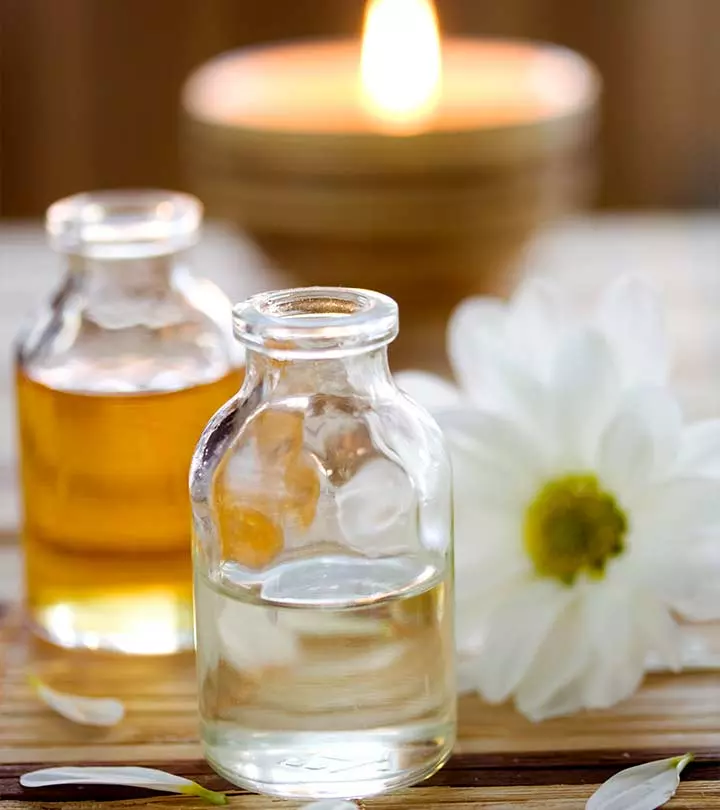
Image: Shutterstock
Essential oils are the main components of aromatherapy and beauty products and are often too concentrated to be applied directly to the skin. Moreover, applying them directly may worsen the skin ailment. The solution? Carrier oils. These dilute the essential oils and help reduce their harsh effects on the skin. So, which carrier oils are the best? How to choose them?
This article explores the 10 best carrier oil options available, their benefits, and tips to use them effectively. Keep reading to learn more.
 Did You Know?
Did You Know?In This Article
What Are Carrier Oils?
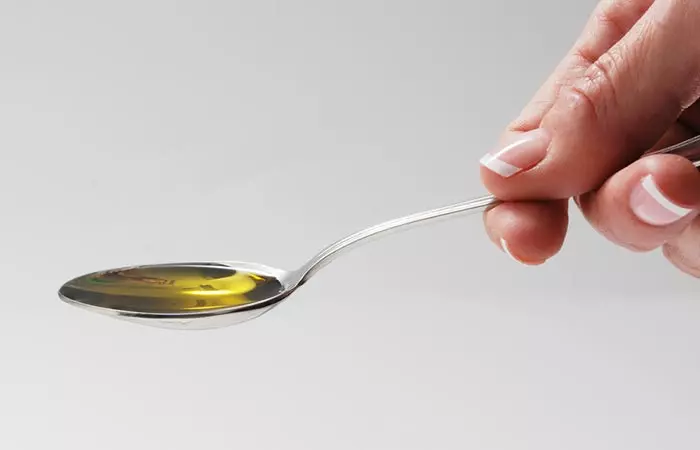
Carrier oils are naturally derived from nuts, seeds, and the kernels of plants. These natural oils augment the healing process intended by the use of a base (essential) oil. They are mostly odorless and help carry the base oil into the skin through enhanced absorption. Carrier oils also make it possible to apply essential oils directly to the skin without causing rashes, irritation, or burns. They dilute the concentration of the base oils, especially the hot oils that might otherwise scald the skin. Moreover, carrier oils also have antimicrobial properties and enhance the performance of the base oil. Also, their non-volatile characteristics may help increase the shelf life of essential oils (1).
 Trivia
TriviaA plethora of carrier oils are available for use in aromatherapy. You may choose them based on their source, concentration level, and purity. In the next section, we list some highly effective and viable carrier oils. Keep reading.
Key Takeaways
- Carrier oils are derived from nuts, plant kernels, and seeds – and they enhance the absorption of essential oils.
- Jojoba oil, sweet almond oil, apricot kernel oil, and avocado oil are some of the carrier oils.
- Carrier oils are mostly chosen based on the essential oil being used and the skin type.
Types Of Carrier Oils

1. Fractionated Coconut Oil (Cocos nucifera): It is an edible oil with a great skin-penetrating effect and is derived from the mature meat of coconut (2). Coconut oil for skin has been praised for its nourishing properties. It has fatty acids and polyphenols in its unrefined, natural form that nourish the skin (3). However, it becomes viable as a carrier oil when its thick fatty acid chains are separated through fractionation.
2. Sweet Almond Oil (Oleum amygdalae): This edible oil, derived by crushing mature almond kernels, is light in consistency but has a strong nutty aroma. It also works wonders as a carrier and massage oil in aromatherapy and in manufacturing soaps, bath oils, and more (4).
Almond oil also has moisturizing and emollienti An agent or substance that hydrates the skin by forming a protective barrier and trapping moisture in the skin. properties. It has historically been used to treat dry skin conditions like eczema and psoriasisi A chronic skin condition that causes itchy skin, rashes, and scaly patches, which can be triggered by an infection, cold, or stress. . Anecdotal evidence also suggests that this oil helps reduce post-operative scars besides improving complexion (5).
3. Jojoba Oil (Simmondsia chinensis): Jojoba oil, as both carrier and essential oil, has many benefits. Jojoba plants produce wax (mostly in seeds) in large amounts. Hence, the oil contains almost 98% pure waxes (mainly wax esters and a few free fatty acids, alcohols, and hydrocarbons). These wax esters have many applications in dermatology (6).
Jojoba oil has anti-inflammatory, antibacterial, and antiviral properties and may help treat several skin conditions, wounds, and burns. It also moisturizes the skin and improves the skin barrier function (6),(7).
“Jojoba oil is non-allergenic and chemically similar to the dermal layer of the skin from a structural perspective. Jojoba offers a more significant depth of absorption than many other carrier oils and is incredibly moisturizing for the skin,” says Adora Winquist, an experienced aromatherapist.
4. Sunflower Oil (Helianthus annus): It is an edible oil extracted from sunflower seeds and has a neutral odor. It is rich in linoleic acid, which makes this oil an ideal ingredient in skin products. The oil acts as a skin barrier against infectious toxins and germs and helps treat irritated skin.
Besides, sunflower oil keeps the skin hydrated and improves the skin barrier function. Sesamol, one of its key constituents, has chemopreventive effects and may reduce the risk of skin cancer (8), (9).
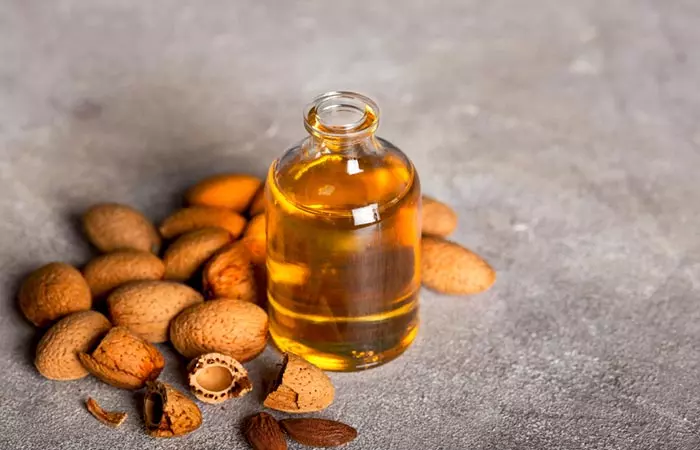
5. Apricot Kernel Oil (Prunus armeniaca L.): Apricot kernel oil is extracted by cold-pressing the temperate-zone fruit that is mainly found in Asia. It is a significant source of oleic acid, linoleic acid, phytosterols, polyphenols, carotenoidsi Naturally occurring pigments in plants, bacteria, fungi, and algae that give them their yellow, orange, and red colors. , α-, γ- and δ-tocopherol, vitamin C, thiamin, riboflavin, and niacin (10).
This oil has traditionally been used to treat skin diseases like psoriasisi A chronic skin condition that causes itchy skin, rashes, and scaly patches, which can be triggered by an infection, cold, or stress. , vaginal infections, furuncle (an infection of hair follicles), acne, and dandruff (10),(c11).
Besides, apricot kernel oil has anti-inflammatory, antimicrobial, and antioxidant properties. Applying it topically may protect the skin against free radicals, and promote skin barrier function and wound healing. Moreover, it penetrates the skin easily and doesn’t leave the skin feeling oily.
Apricot kernel oil is widely used in making moisturizers, face scrubs, lip balms, UV protection moisturizers/ointments, and baby oils. Besides, it is also added to essential oils used for hair, body, and massage. This oil may also help relieve backache and joint aches (12).
6. Blackseed Oil (Nigella sativa): Black seeds are traditionally used to treat headaches, coughs, abdominal pain, diarrhea, asthma, rheumatism, and more. The seeds of this plant are phytochemically rich and are much researched pharmacologically.
The blackseed oil extract contains antioxidant, anti-inflammatory, anticancer, analgesic (pain-relieving), and antimicrobial properties due to the presence of thymoquinonei A phytochemical compound found commonly in black seed oil that has anti-inflammatory and antioxidant properties. (13).
7. Argan Oil (Argania spinosa): Argan oil is extracted from finely crushed kernels through cold-pressing. It can be enriched with antioxidants, making it the most suitable carrier oil for cosmetic therapy.
The oil is rich in fatty acids and also contains polyphenols, tocopherols, sterols, squalene, and triterpene alcohols (14). “Argan oil is one of the most popular and noteworthy oils for hair and skin due to its rich profile of fatty acids. It also contains vitamin E, which is a potent antioxidant for the body from head to toe. It also supports skin cell regeneration, lending itself as a top choice for wound and scar tissue healing,” says Adora.
8. Rosehip Oil (Rosa rubiginosa/Rosa moschata): Rosehip oil is extracted by cold pressing select varieties of rose flower-hips after the petals have withered. It is mildly scented and complements essential oils in treating skin disorders.
The oil is rich in unsaturated fatty acids and antioxidants, and protects against inflammation and oxidative stress. Applying the oil topically may help treat various skin conditions like acne, eczema, neurodermatitis (chronic itching and scaling), and cheilitis (inflamed lips) (8). Besides, it may help accelerate wound healing and reduce scars, including that of acne (15). Its diluted form is also used as a cleanser, moisturizer, and makeup remover.
Adora says, “Rosehip seed is a vitamin C-rich carrier you can add to your skin care regime. Add this oil in a smaller ratio, approximately 5 percent of your overall blend, as an anti-aging serum. It also carries anti-inflammatory properties and is often used for rosaceai An inflammatory skin condition that causes red and small pus-filed bumps on the skin, especially on the face. .”
9. Avocado Oil (Persea americana): Avocado oil, obtained by a cold extraction method, retains a majority of bioactive phytochemicalsi Natural bioactive compounds in plants that help resist plant virus infections, fungi, and other insects. . It is a strong preservant of the essential oil and does not interfere with the base oils. Avocado oil is also less greasy and scented than other carrier oils, making it one of the best in aromatherapy.
Avocado oil is rich in linoleic acid, linolenic acid, and oleic acid besides containing β-sitosterol, β-carotene, lecithin, minerals, and vitamins A, C, D, and E. It helps nourish dry, damaged, or chapped skin. Moreover, topical application of the oil was found to accelerate wound healing and increase collagen production in rats (8).
10. Grapeseed Oil (Vitis vinifera): It is made from discarded grape seeds after the pulp is extracted for making wine. The oil is rich in vitamin E, linoleic acid, omega fatty acids, phenolic compounds, and antioxidants. Studies suggest that the oil may help close the wound faster (8).
According to another study, grapeseed extract may significantly moisturize skin, improve skin tone, and slow down premature aging signs like wrinkles. Besides, grapeseed oil is also used as an emollienti An agent or substance that hydrates the skin by forming a protective barrier and trapping moisture in the skin. in cosmetic products (16).
You can also use castor oil as a carrier oil to moisturize your skin and improve overall skin health and wellness (17). Many of these carrier oils can benefit the skin on their own too. But how do these oils behave when mixed with an essential oil? What benefits do they offer? Keep reading to know.
Carrier Oil Benefits
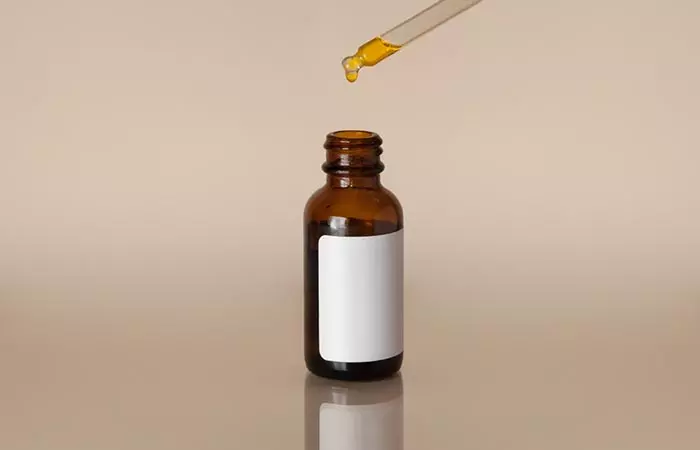
According to Adora Winquist, the aromatherapist, following are the benefits of using carrier oils:
- Carrier oils work as a key delivery method for essential oils.
- They offer their phytonutrients (vitamins, minerals, and antioxidants) through massage, skin care, hair care, and other body care products.
- The skin, the largest organ of the body, requires deep levels of hydration. Drinking water addresses our internal process while vitamin-rich carrier oils support hydration externally, moisturizing the skin to ensure its subtle elasticity.
- Carrier oils also offer their protective and healing properties to the skin, with many of them containing natural antibacterial activity.
One popular way to enjoy the benefits of carrier oils is using a carrier oil diffuser. Learn more about it in the next section.
What Is A Carrier Oil Diffuser?
A carrier oil diffuser is a device that offers a fantastic way to enjoy the benefits of essential oils at your home. All you have to do is mix a few drops of an essential oil with a carrier oil and place it in the diffuser. It then disperses the oil-infused vapor into the room. This delightful fragrance lingers in the air and creates a pleasant and therapeutic atmosphere that can reduce anxiety, improve mood, reduce stress, and possibly promote better sleep (18).
Carrier oil diffusers are popular for their ease of use and versatility. They provide you with an all-natural way to create a soothing and aromatic environment at your home.
Choosing the right carrier oil is important based on the essential oil being used and your skin type. Read on to understand how you can choose your carrier oil.
How To Choose Carrier Oils
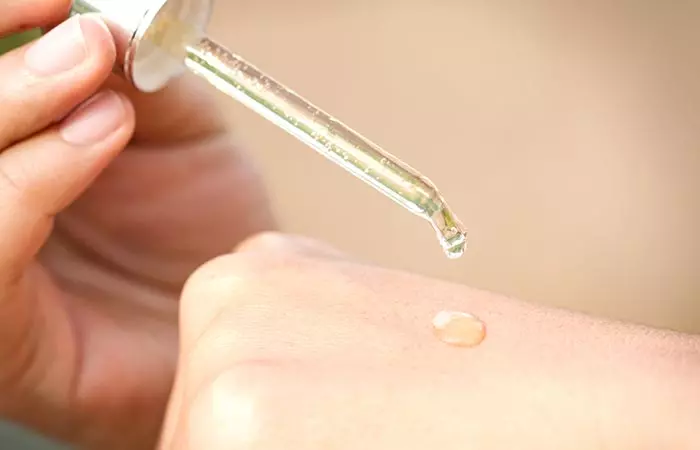
Here are a few tips for picking the right carrier oil:
- Make sure to check if the oil has any distinct or pungent odors. It may affect the aroma of your essential oil.
- Check how your skin absorbs the carrier oil. Some carrier oils are easier to be absorbed than others.
- Adora warns, “People who have nut or other idiosyncratic allergies may be allergic to almond oil, coconut oil, or olive oil. So, you can conduct a patch test to see if there is any irritation or sensitization, which involves the immune system and causes what look like irritations.”
- Apply a drop of the carrier oil to the area under your ear.
- Cover it with a band-aid for 24 hours to see if you have any irritation or rashes.
- It would be better if the carrier oil has a longer shelf life. Kim, a blogger, explains how she checks the shelf life of the carrier oils she uses. She writes, “I go through grape seed oil and pure coconut oil quick enough that I don’t have to worry about them expiring. My sunflower oil, on the other hand, is another story. It expired last month. I use sunflower oil to top off my moisturizing beauty serum of 10 drops each of lemon, lavender and frankincense essential oils in a small dropper or roller bottle. So, personal lesson learned (i)”.
What should the concentrations of the carrier oil and base oil be? Following are some guidelines you must follow to achieve better results.
For Adults:
- 5% dilution: 15 drops of essential oil in 6 teaspoons of carrier oil
- 3% dilution: 20 drops of essential oil in 6 teaspoons of carrier oil
- 10% dilution: 60 drops of essential oil in 6 teaspoons of carrier oil
For Children
- 5% to 1% dilution: 3 to 6 drops of essential oil in 6 teaspoons of carrier oil.
Note:
There is insufficient scientific data on the recommended concentrations of carrier and base oils. Consult a doctor before using them.
Adora Winquist gives the following advice for those using aromatherapy:
- A standard therapeutic dilution rate is 15 drops of one essential oil or synergy of 3 to 5 essential oils to 1 oz. (30 ml) of your carrier oil. In plant medicine, a synergy offers greater potency and efficacy than the use of a single essential oil.
- Always use dark(blue/brown) glass for storing and mixing oils. Keep them away from exposure to direct heat and sunlight.
- Any blends that are mixed with carrier oil will last up to 6 months.
- Shake well before use to maintain the synergistic balance of the formula.
Carrier oils are made from the nuts and kernels of plants that help dilute essential oils for better absorption. Since essential oils are highly concentrated and may cause skin irritation, carrier oils are mixed with them to enhance their effectiveness. Incorporating carrier oils such as grapeseed oil or coconut oil into your skin care routine can nourish, hydrate, and heal your skin. Remember to mix the oils properly and store them in airtight containers to avoid exposure to the sun and contamination. Conduct a patch test before application.
Frequently Asked Questions
Is shea Butter a carrier oil?
No, shea butter is not a carrier oil.
Is lavender oil a carrier oil?
No, lavender oil is an essential oil.
What is the lightest carrier oil?
Grapeseed oil is one of the lightest carrier oils available.
What is the difference between carrier oils and essential oils?
Carrier oils come from seeds, nuts, or fruits and are used to dilute essential oils for safe skin use. Essential oils are extracted from flowers, leaves, bark, roots, or other aromatic parts of plants. They should not be used directly on the skin without dilution.
Discover the benefits of carrier oils and how to use them on your skin. Watch this informative video to learn more about how to incorporate them into your skincare routine.
Illustration: Types Of Carrier Oils To Dilute Essential Oils & Benefits
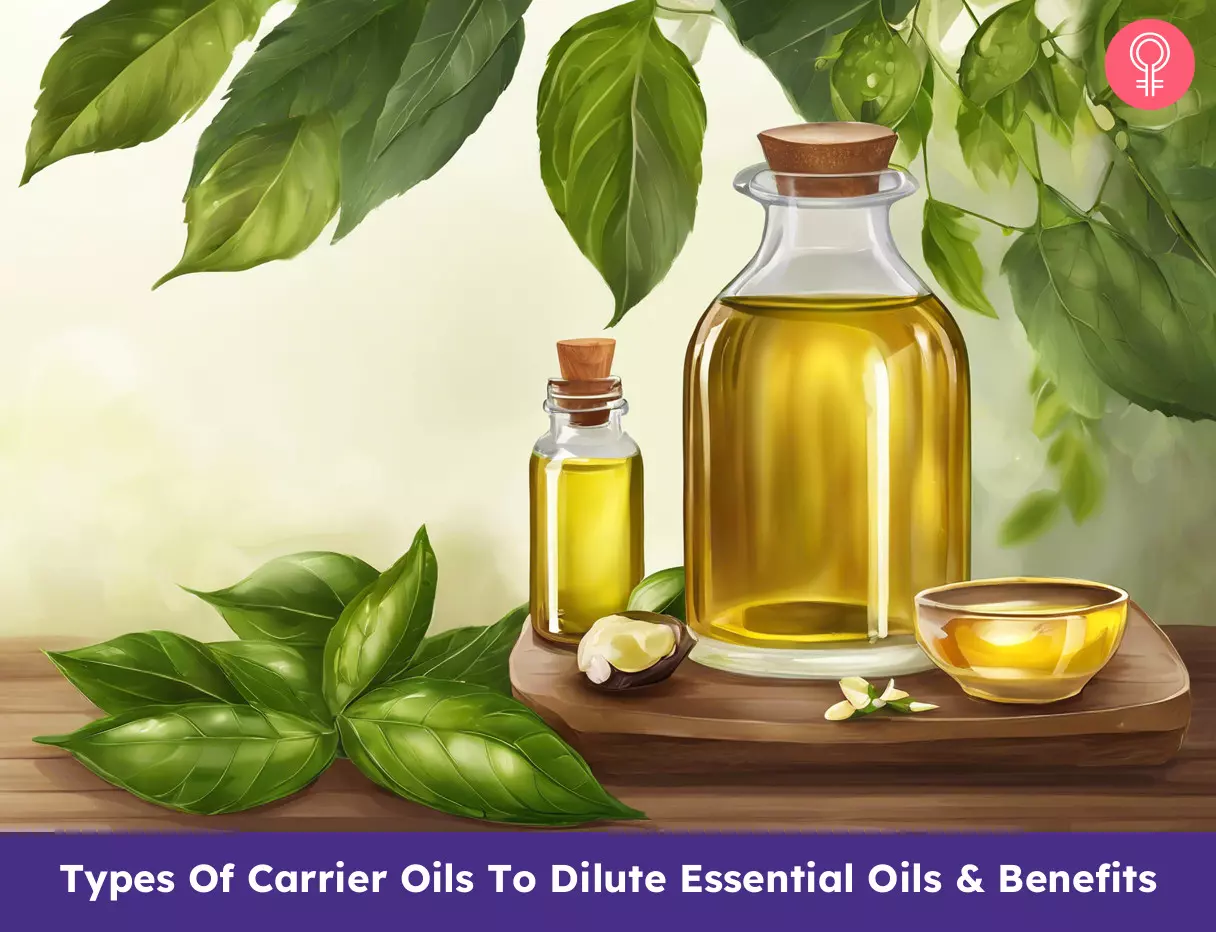
Image: Stable Diffusion/StyleCraze Design Team
Personal Experience: Source
StyleCraze's articles are interwoven with authentic personal narratives that provide depth and resonance to our content. Below are the sources of the personal accounts referenced in this article.
i. Carried Away: A Guide to Carrier Oils for Essential Oilshttps://oilsandspoils.blog/2016/03/10/carried-away-a-guide-to-carrier-oils-for-essential-oils/
References
Articles on StyleCraze are backed by verified information from peer-reviewed and academic research papers, reputed organizations, research institutions, and medical associations to ensure accuracy and relevance. Read our editorial policy to learn more.
- The Influence of Carrier Oils on the Antimicrobial Activity and Cytotoxicity of Essential Oils
https://www.ncbi.nlm.nih.gov/labs/pmc/articles/PMC6348851/ - Penetration enhancing effects of selected natural oils utilized in topical dosage forms
https://pubmed.ncbi.nlm.nih.gov/26161938/ - Coconut Oil
https://www.sciencedirect.com/topics/neuroscience/coconut-oil - Fatty acid composition and anticancer activity in colon carcinoma cell lines of Prunusdulcis seed oil
https://www.ncbi.nlm.nih.gov/pmc/articles/PMC6130748/ - The uses and properties of almond oil
https://pubmed.ncbi.nlm.nih.gov/20129403/ - Jojoba Oil: An Updated Comprehensive Review on Chemistry Pharmaceutical Uses and Toxicity
https://www.ncbi.nlm.nih.gov/pmc/articles/PMC8197201/ - Natural Oils for Skin-Barrier Repair: Ancient Compounds Now Backed by Modern Science
https://pubmed.ncbi.nlm.nih.gov/28707186/ - Anti-Inflammatory and Skin Barrier Repair Effects of Topical Application of Some Plant Oils
https://www.ncbi.nlm.nih.gov/pmc/articles/PMC5796020/ - Chemopreventive effect of resveratrol sesamol sesame oil and sunflower oil in the Epstein-Barr virus early antigen activation assay and the mouse skin two-stage carcinogenesis
https://pubmed.ncbi.nlm.nih.gov/12162952/ - Chemical Composition and Antioxidant Properties of Oils from the Seeds of Five Apricot (Prunusarmeniaca L.) Cultivars
https://pubmed.ncbi.nlm.nih.gov/31292346/ - Chemical composition and antimicrobial activity of the essential oil of apricot seed
https://pubmed.ncbi.nlm.nih.gov/25219371/ - Chemical Composition and Antioxidant Properties of Oils from the Seeds of Five Apricot (Prunusarmeniaca L.) Cultivars
https://www.jstage.jst.go.jp/article/jos/68/8/68_ess19121/_pdf - The medicinal potential of black seed (Nigella sativa) and its components
https://www.sciencedirect.com/science/article/abs/pii/S1572557X05020088?via%3Dihub - Therapeutic potential of argan oil: a review
https://academic.oup.com/jpp/article/62/12/1669/6135677 - Rosehip Oil Promotes Excisional Wound Healing by Accelerating the Phenotypic Transition of Macrophages
https://pubmed.ncbi.nlm.nih.gov/30199901/ - Trends in the Use of Botanicals in Anti-Aging Cosmetics
https://www.ncbi.nlm.nih.gov/labs/pmc/articles/PMC8230945/#B30-molecules-26-03584 - Therapeutic potential of castor oil in managing blepharitis, meibomian gland dysfunction and dry eye
https://onlinelibrary.wiley.com/doi/full/10.1111/cxo.13148 - Effect of aromatherapy on sleep quality of adults and elderly people: A systematic literature review and meta-analysis https://pubmed.ncbi.nlm.nih.gov/34166869/
Read full bio of Dr. Enrizza Factor
Read full bio of Gayathri Vijay
Read full bio of Anjali Sayee
Read full bio of Swathi E








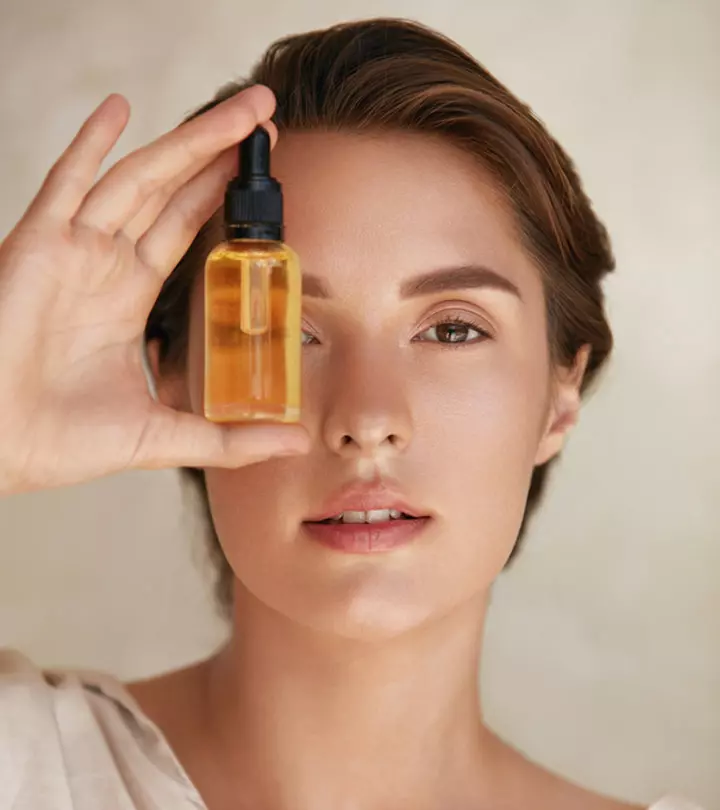

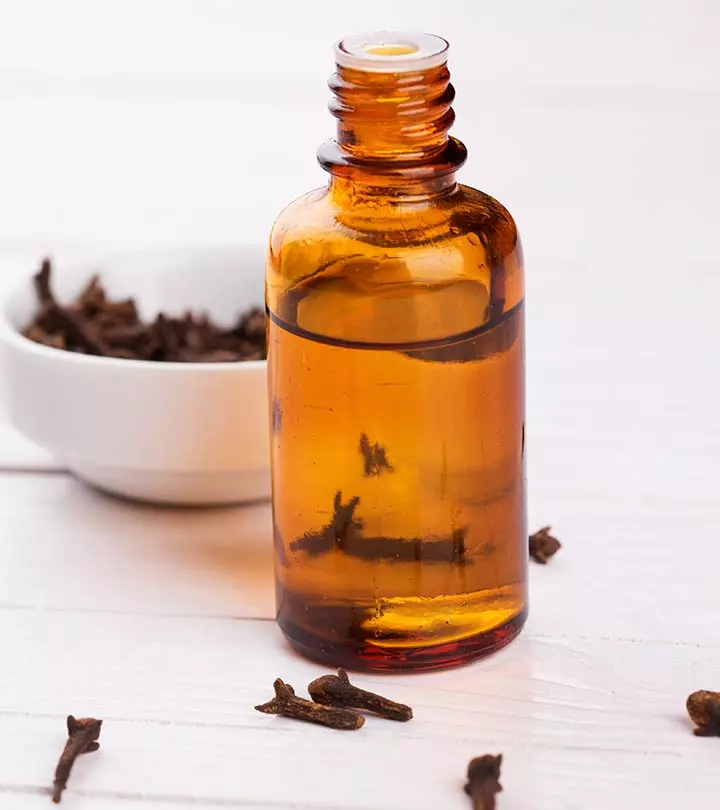
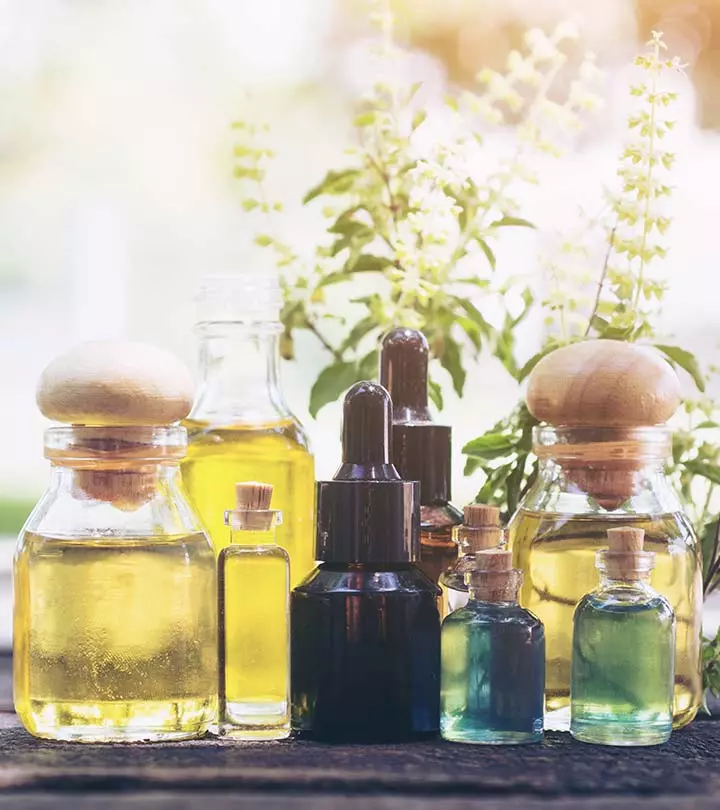
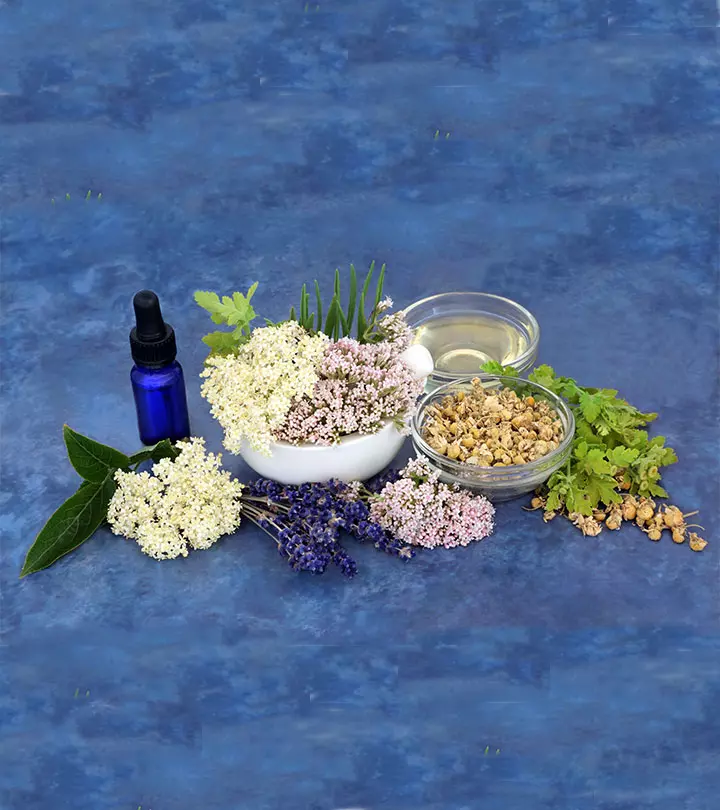
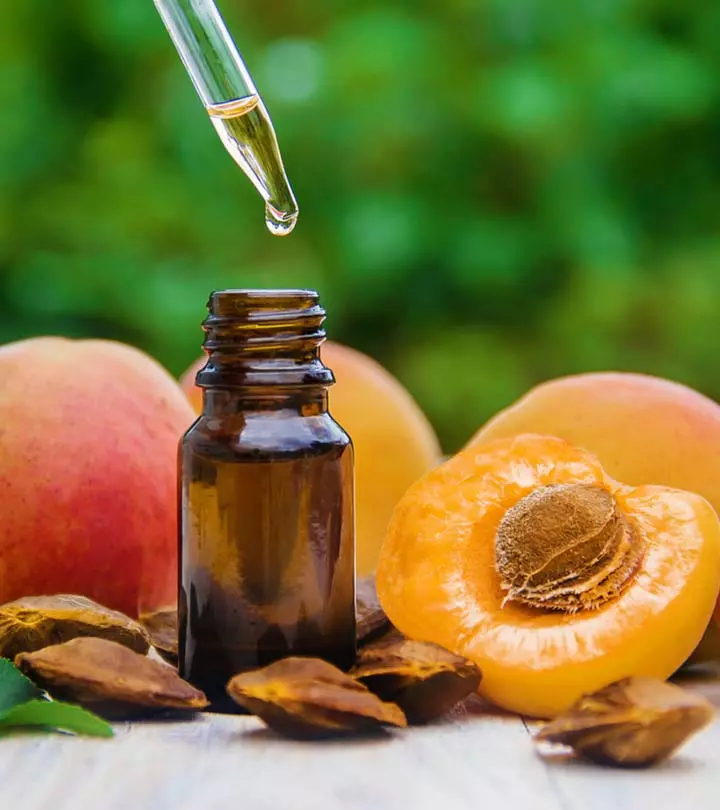
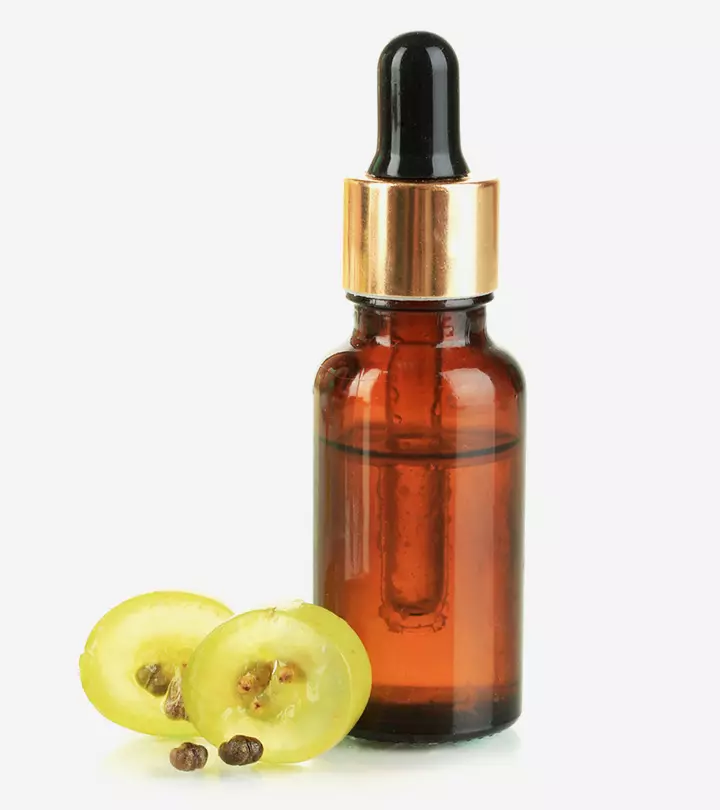
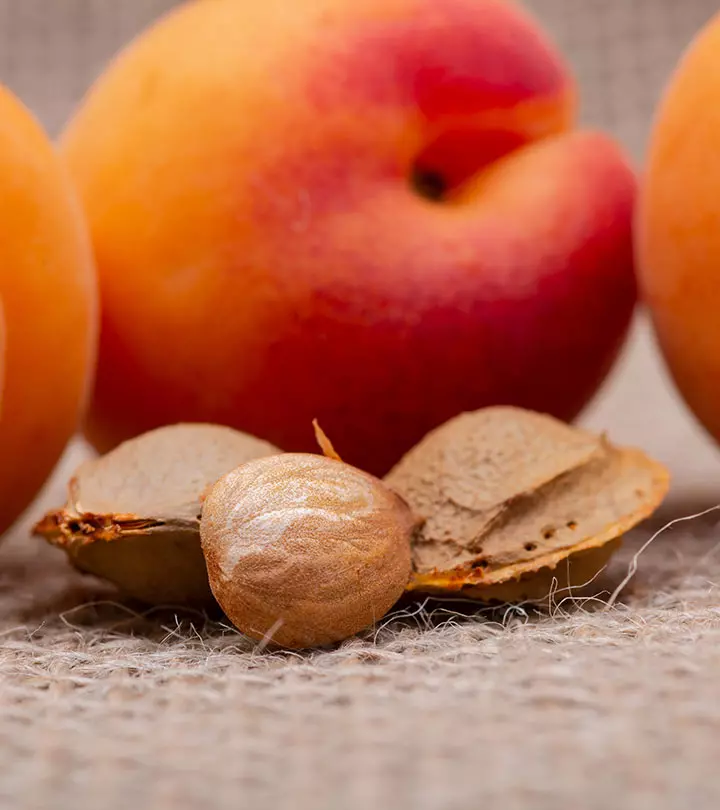
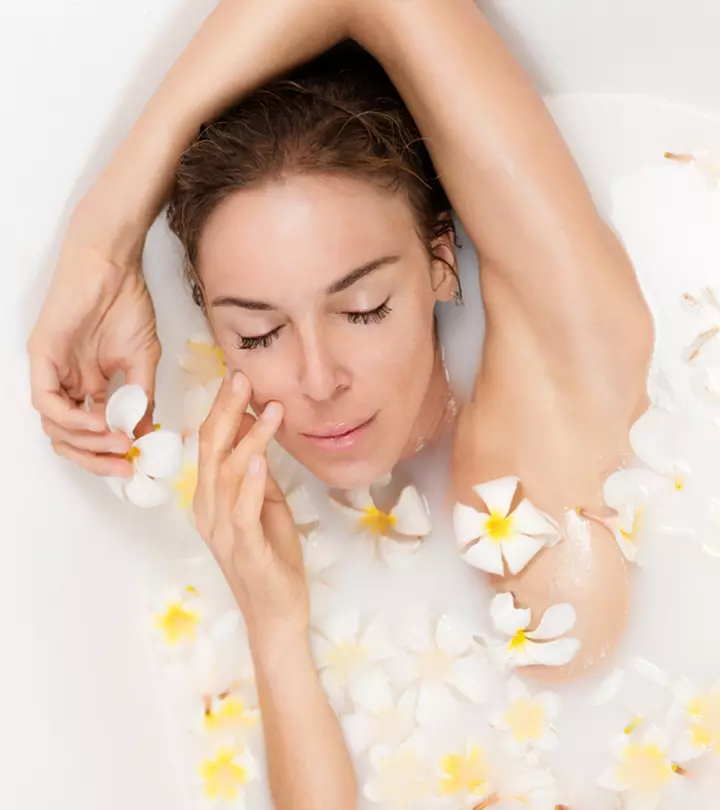



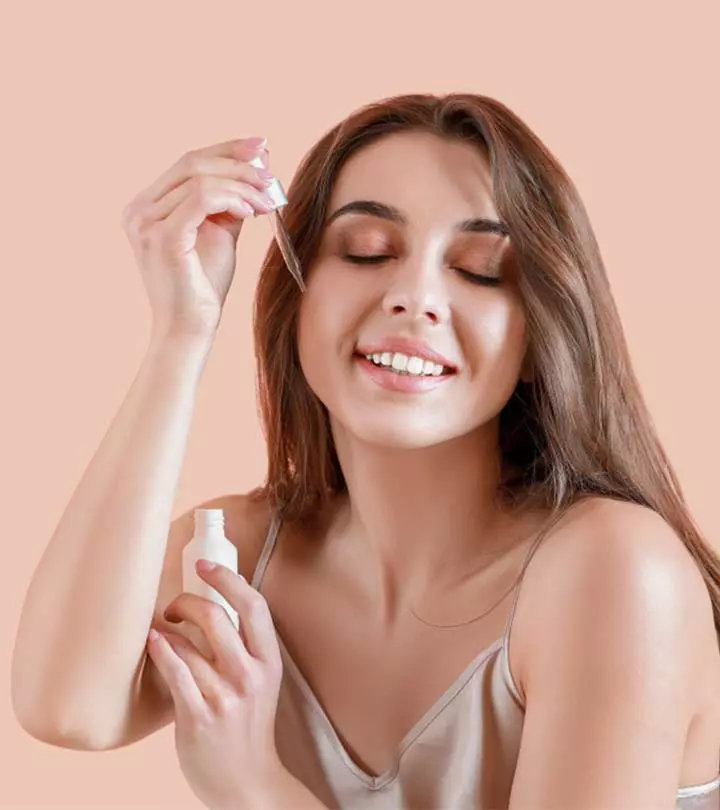
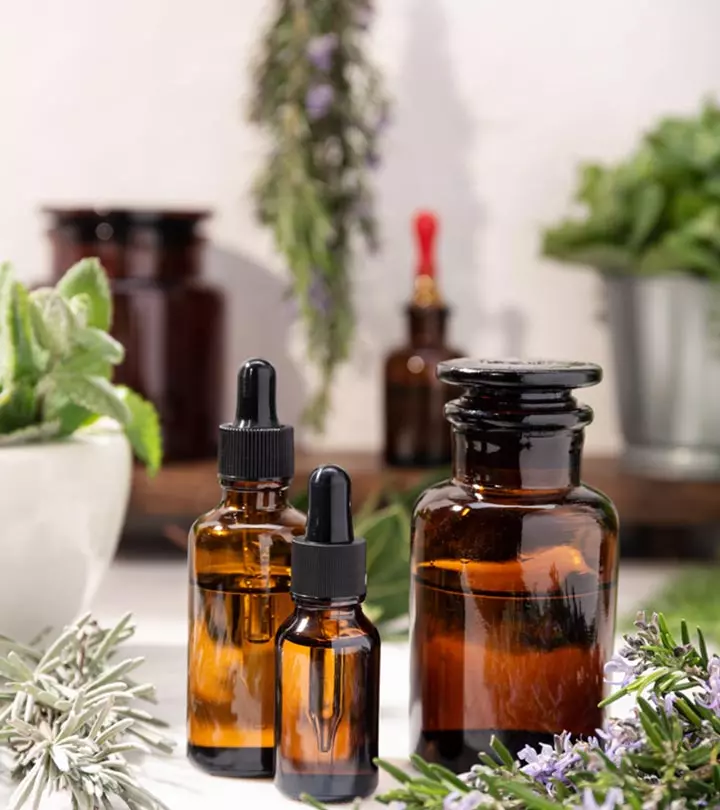

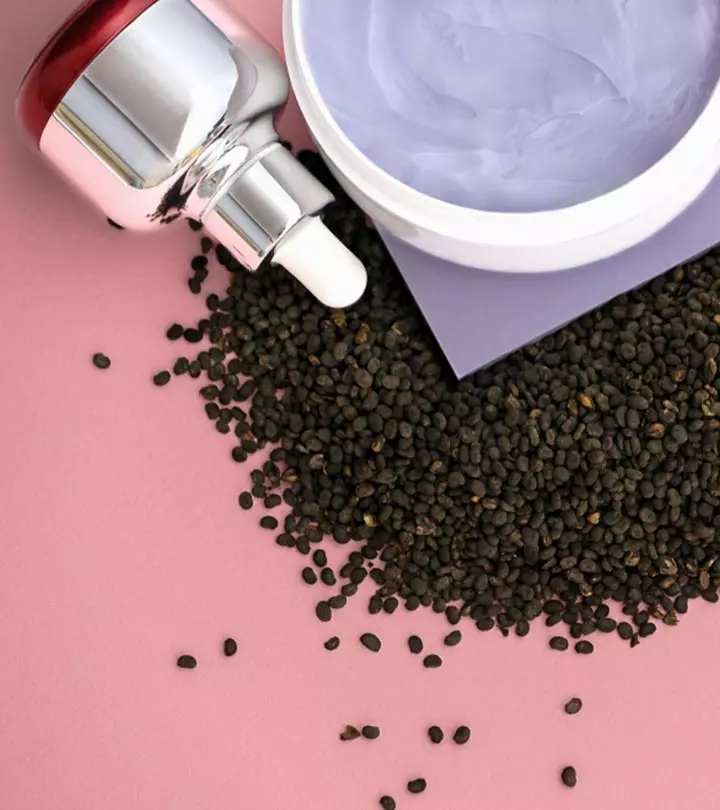


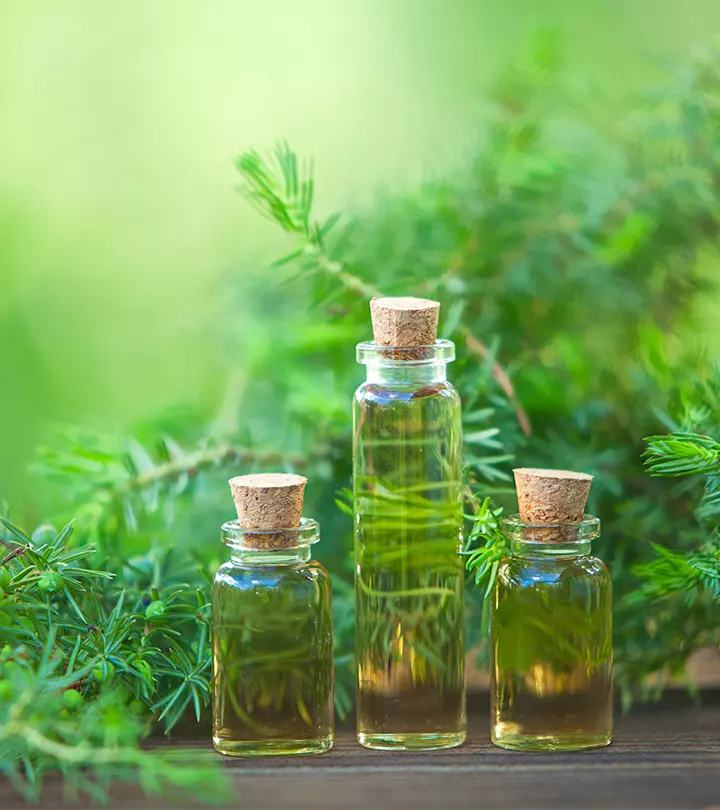
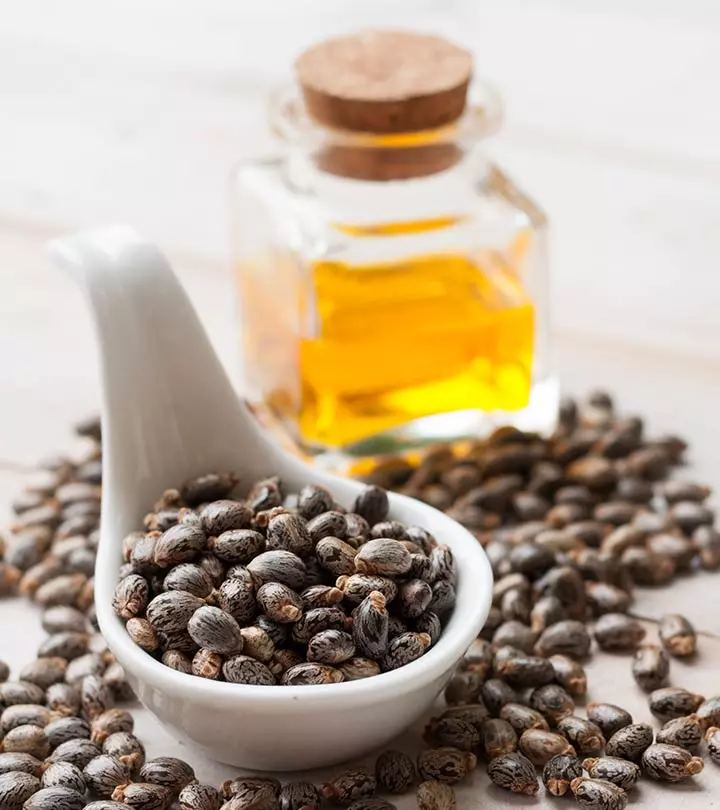
Community Experiences
Join the conversation and become a part of our empowering community! Share your stories, experiences, and insights to connect with other beauty, lifestyle, and health enthusiasts.